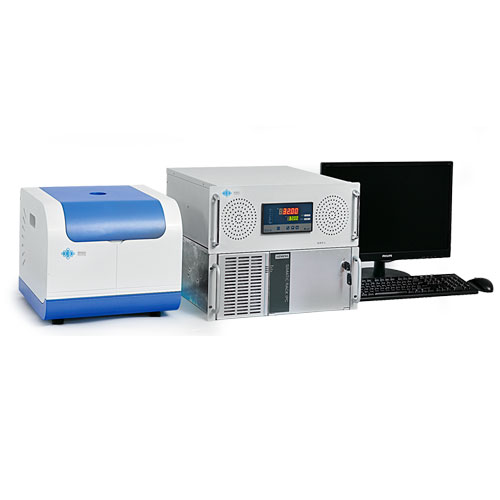Compact nuclear magnetic resonance (Compact NMR) is a unique form of NMR technology. In recent years, with the advantages of convenience, greenness and accuracy, a large number of new methods and applications have emerged in the research fields of industry, medicine, agriculture, food, materials, etc., Is booming rapidly.
The essence of compact Time-domain NMR lies in a “compact” character. The literal meaning of “compact” mainly refers to the volume of the instrument, which gives the NMR technology many new features and new vitality. These features include:
First, the hardware is lightweight. Compact Time-domain NMR hardware miniaturization includes both detectors and electronic systems. In terms of detectors, the reduction of magnets directly leads to weight reduction, and the reduction of coils reduces the demand for electronic circuits, and promotes correspondingly compacter and lighter electronic circuits.
Compact Time-domain NMR analysis instruments have experienced: floor-to-desktop-portable-handheld-wearable evolution. The light weight of the hardware has made MRI from a traditional large-scale special laboratory to a mass large-scale application has a technical feasibility basis.
Bringing the MRI equipment to the measurement site, the new concept of in situ measurement of the original body greatly expands the imagination space of the application of the MRI technology. Unilateral MRI even achieves the measurement of objects of any size. Application areas, combined with their development, provide ample power.
Second, cost economics. The miniaturization of MRI hardware directly reduces the manufacturing cost, which is the second advantage factor for achieving large-scale applications. Compact Time-domain NMR usually uses low-cost permanent magnets as the main magnetic field. While the hardware itself is reduced, maintenance, shielding and site costs are also greatly reduced.
With the improvement of economy, scientific research institutions have gradually become popular with the option of deploying compact Time-domain NMR instruments for basic teaching and scientific research. NMR technology is gradually popularized and understood by the public, and large-scale application groups and professionals are cultivated. In response to the ever-growing special application requirements, a flexible development method that facilitates joint research between manufacturers and users has emerged, and a virtuous cycle of production, education and research has emerged.
Third, the magnetic field is simplified. Compact (even open magnet) Time-domain NMR instruments implement spectroscopy, imaging, and relaxation measurements, and can characterize objects from information in the frequency, space, and time dimensions. Due to the more common problems of multi-component heterogeneous and complex systems in popular applications, imaging and relaxation are the main methods of natural selection.
Especially the time-domain measurement method is not only simple and convenient, it is very suitable for the rapid evaluation of multi-component materials, but also has very low requirements on the magnetic field distribution (can be measured based on a single bar magnet), which is very suitable for low-cost applications and has developed many landmarks method.
The main problem caused by “compact” for NMR is that the magnetic field strength becomes “compact”, and the spectrum and imaging resolution are reduced accordingly. Due to the ease of implementation, compact magnetic resonance magnets with a variety of field strengths and multiple gradients have been developed. With the multi-solution of the inversion of regularized inverse Laplace transform, it is difficult for compact Time-domain NMR to achieve the standardization and operation of measurement Standardization.
The purpose of “Compact Time-domain NMR” is to solve the complexity of operation and strive to allow users to complete the experiment as conveniently as using a mobile phone. This book elaborated on the concept, method, and hardware operation of compact-scale MRI. Through many novel examples, the standardized sequences, parameters, and procedures for measuring complex multi-component systems in different fields were given in a teaching way. I believe that for MRI Both technical R & D personnel and users are of great benefit.
MRI compact instruments, new applications, big stage! The process of NMR miniaturization is its popularization and popularization. The flexibility and cost advantages of compact Time-domain NMR, combined with the low-field-time domain technology combination, form a good competitiveness. In the future, the potential of compact Time-domain NMR will continue to be tapped and discovered!

 NIUMAG
NIUMAG